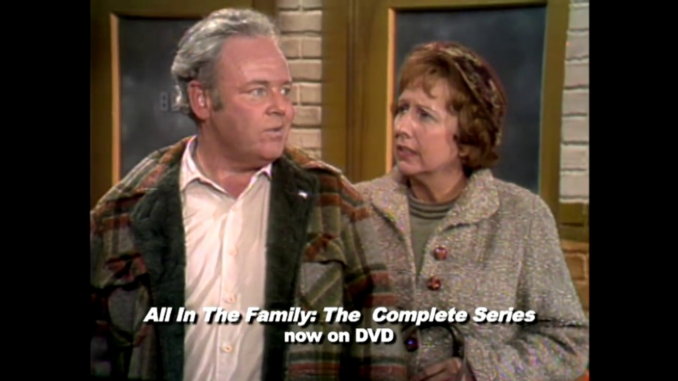
When it comes to TV shows that have had a profound impact on American culture, All in the Family stands at the forefront. It was a show ahead of its time, pushing boundaries and challenging societal norms, all while providing a healthy dose of humor. Created by Norman Lear and premiering in 1971, All in the Family became more than just a sitcom – it was a cultural revolution that forced television audiences to confront uncomfortable truths. Over fifty years later, its influence remains undeniable. So, what made this show so revolutionary, and why does it continue to be relevant today? Let’s dive into the reasons why All in the Family is still regarded as one of the most important shows in television history.
1. The Bold and Fearless Humor
At its core, All in the Family was a comedy. But it was a comedy with a purpose—something that was rare at the time. It didn’t shy away from controversial topics such as racism, sexism, political correctness, and the generational divide. The show tackled issues that were considered taboo for mainstream TV, all under the guise of humor. And that’s where its genius lay.
The central figure of this revolution was Archie Bunker, the working-class father of the Bunker family. Archie was a man of his time, holding prejudiced views about race, gender, and society in general. He was loud, brash, and unapologetically himself. But what made Archie’s character so unique wasn’t just his offensive beliefs—it was the way the show used him to highlight the flaws and complexities of American society. Through Archie, All in the Family gave voice to the anger, frustration, and ignorance of a generation that felt left behind by social changes.
By turning these uncomfortable topics into punchlines, the show not only entertained but also opened up a larger conversation about race, equality, and social progress. It didn’t aim to teach moral lessons but instead encouraged viewers to reflect on their own beliefs and assumptions. And while Archie’s views were often offensive, the show’s treatment of his character allowed viewers to see him as a product of his environment—rather than just a cartoonish villain.
2. A Look at Its Impact on TV Shows Today
Without All in the Family, many of the shows we watch today may never have existed. This sitcom changed the way TV shows approached controversial subjects and provided the blueprint for future shows that would challenge social norms and tackle tough issues.
Shows like The Simpsons, The Office, and South Park owe a huge debt to All in the Family. Like those modern comedies, All in the Family used humor to address sensitive topics, often exposing societal flaws in a way that was both entertaining and thought-provoking. The show made it clear that comedy could be a powerful tool for social commentary.
In fact, All in the Family was the first show to place socially and politically charged discussions into the living rooms of millions. It wasn’t afraid to ask tough questions or make uncomfortable statements. By doing so, it paved the way for shows that would tackle issues like mental health, LGBTQ+ rights, and immigration in ways that were both critical and comedic.
3. Archie Bunker – TV’s Most Complicated Character
If there’s one character who defined All in the Family, it’s Archie Bunker. Played by Carroll O’Connor, Archie became one of the most iconic TV characters of all time. On the surface, he seemed like the stereotypical bigoted, narrow-minded patriarch. But as the show progressed, it became clear that Archie was far more complex than that.
Archie’s offensive attitudes were a reflection of his deep-seated insecurities. He felt threatened by the changing world around him, and his responses were often exaggerated and combative. Underneath his gruff exterior, however, Archie was a man who struggled with feelings of inadequacy and a fear of losing his place in society. This vulnerability made him an interesting, sometimes tragic, character. Rather than being a one-dimensional villain, Archie was someone whom viewers could both laugh at and sympathize with.
Through Archie, All in the Family showed that bigotry and ignorance weren’t always born out of malice but out of fear and misunderstanding. In a way, Archie’s character was a mirror to society—exposing the struggles, contradictions, and biases that existed within the American psyche during the 1970s.
Conclusion
It’s easy to forget just how groundbreaking All in the Family was. At the time of its premiere, no one had seen anything quite like it. It challenged norms, stirred controversy, and sparked conversations about issues that were long considered taboo for television. Today, it’s impossible to overstate the show’s cultural significance. All in the Family not only revolutionized television but also reflected the tensions and struggles of its era. Its legacy continues to influence sitcoms and dramas to this day, reminding us that sometimes the most powerful way to address serious issues is through the lens of humor.
If you’ve never watched All in the Family, now is the time to experience it. It may be over 50 years old, but its relevance and ability to provoke thought are timeless.
